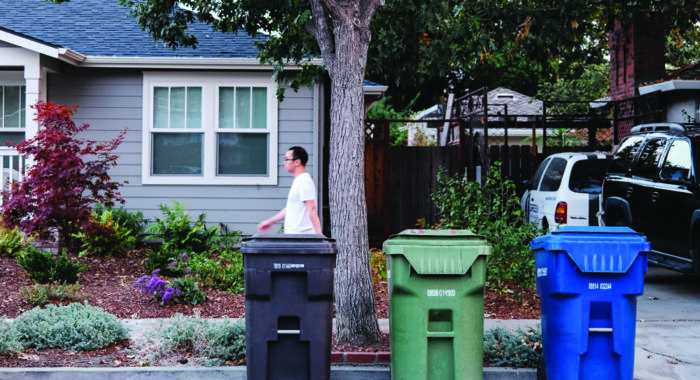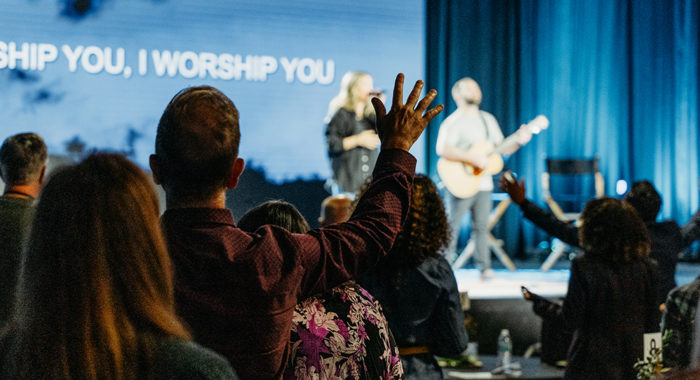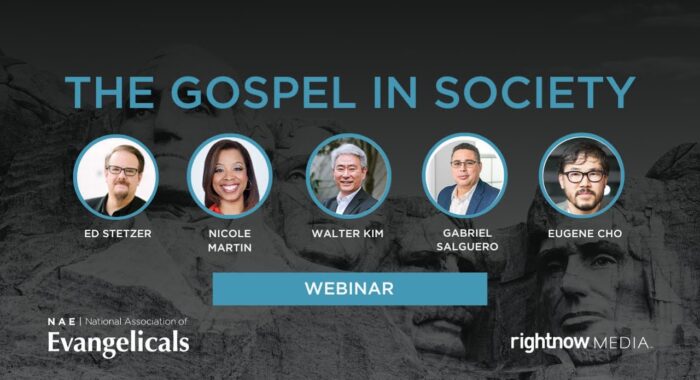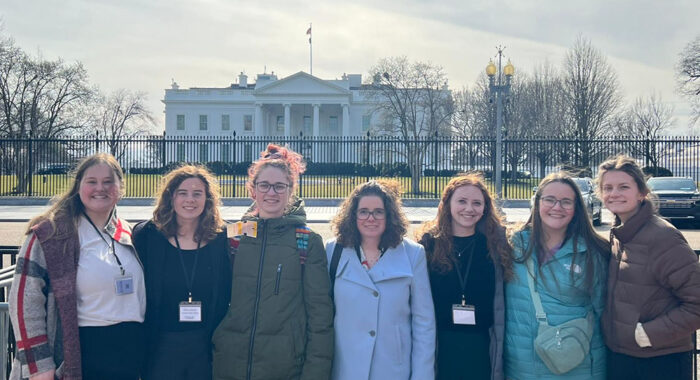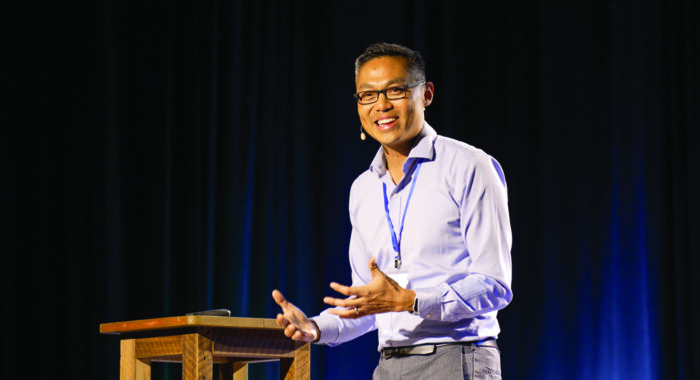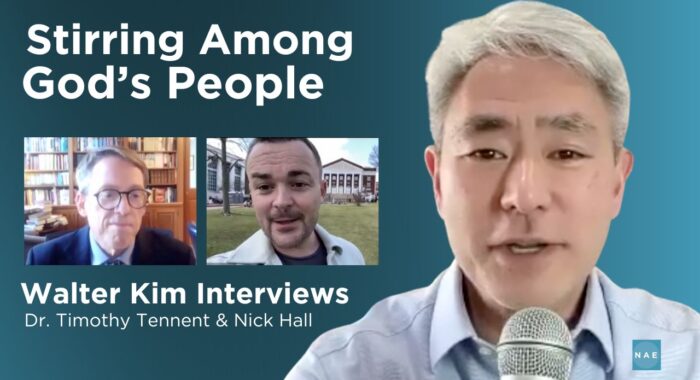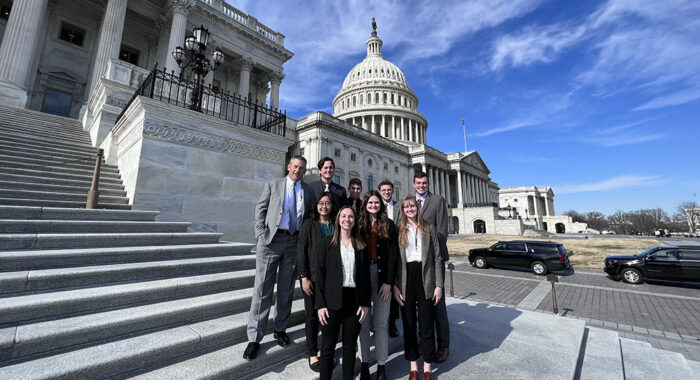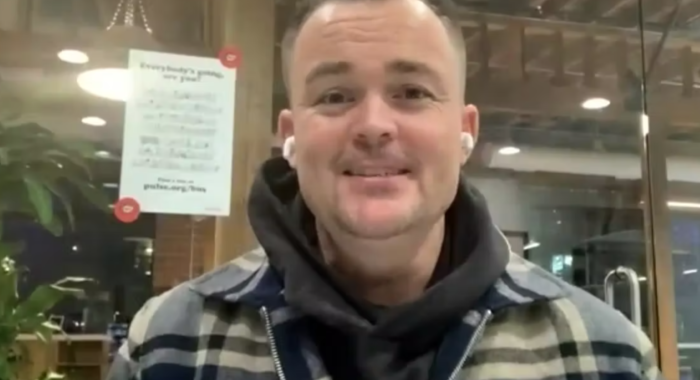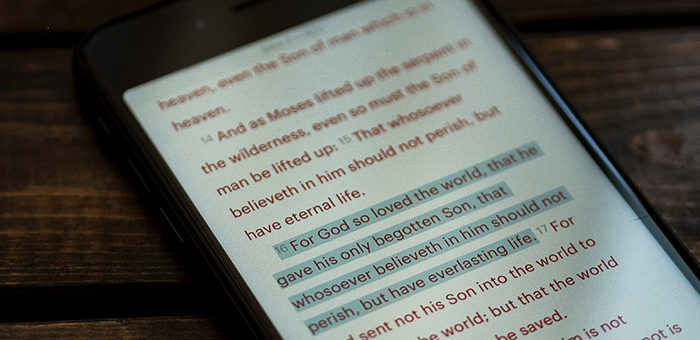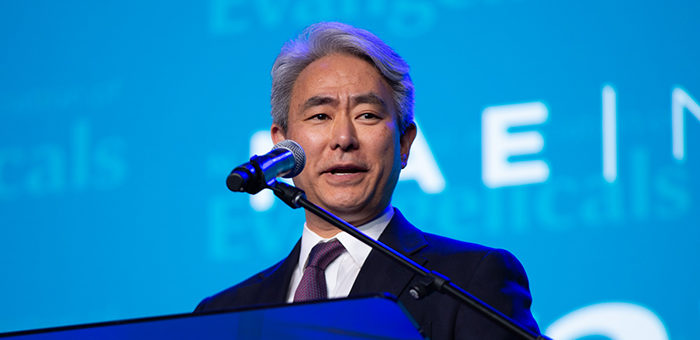In Today’s Conversation, Leith Anderson and Nick Hall talk about evangelism among young people and the spirituality of young adults in America.
In his junior year of college, Nick wrote a paper about how to reach his generation with the gospel. The paper went viral and turned into a student-led movement of over 1,000 students responding to the gospel, and then spread out to other campuses, reaching more than 50,000 in just a couple years. Nick has now shared the gospel at hundreds of events to millions of students and is regularly featured as a speaker for pastors gatherings, training events and festivals around the world.
In this podcast, you’ll hear Leith and Nick discuss:
- The state of evangelism in the United States today;
- Nick’s personal calling as an evangelist;
- What young people want in a local church;
- Messages that help reach the younger generation for Christ; and
- How evangelism and discipleship work together.
Read a Portion of the Transcript
Leith: Let’s talk about you. And let’s talk about young evangelists. It seems to me that there were more evangelists a generation ago then there are today. So, are there many of you out there?
Nick: You know, that’s a good question. I don’t know if there’d be many who want to claim to be like me. I don’t know I’m the cool kid, so I’m not sure if there’d be many that would want that reputation. But it is an interesting time. As you said, it seems like a generation before maybe the word “evangelist” — or being in that vocation — was a more prominent field. And I would say it’s certainly true that fewer and fewer people seem to be grabbing onto that vocation, or mantle, or whatever you want to call it. There are a few people out there certainly that we know of, but we really feel like it’s a church kind of dynamic where the church has kind of stopped talking about the evangelist as a vocation. And so I believe that there are just as many evangelists as there always was, because God hasn’t stopped calling these different offices and different people in the Church. But I think that the Church has maybe stopped making as much of an emphasis on that vocation, largely probably in reaction to some of the negative things that happened in previous generations — whether it be prosperity or scandal or whatever else. But it seems to be not exactly the most popular word when you say “evangelist” today.
Leith: Well, let’s trace your journey. So you start out writing a college paper — I wonder when you were writing it if you ever imagined the impact that it would have — and then from that college paper to full-time evangelism and worldwide ministry. How did this work? What’s the trajectory here?
Nick: Yeah, well, at the end of the day — I think as in so many things — as God calls, and God enables, and God opens doors. You know, for me I was 19 years old, I was a freshman in college, and God really was rearranging my life around this calling towards evangelism and being an evangelist. And the only guy I knew of who was an evangelist was Billy Graham. And you know, you talk to young people today they don’t know who Billy Graham is. But for me, I knew that his book was on my grandparents’ coffee table, and I knew my parents used to have Billy Graham crusades on the television at home. And so I read his biography cover to cover and started praying, and God really gave me this statement of “My life exists to put Christ at the pulse of a generation.” Hence, where the word “pulse” came in, was really from this statement.
And so, as you said, I really wrote this paper in my English class. I was a junior when that happened — a secular university back in North Dakota — and really from there, God just began opening doors. I was traveling with the Billy Graham and Luis Palau teams, and really learning under these individuals that had been my heroes — traveling with the likes of Josh McDowell and getting to spend time with the leaders of Campus Crusade and even Ravi Zacharias and others. And really through that experience was where I would say God was equipping me, and equipping what would become our team to be the foundation of what we called PULSE when we launched in the fall of 2006.
Leith: Alright, so PULSE is also the name of the ministry — the organization — that you lead. I’ve got that right?
Nick: That’s correct.
Leith: So, how did you get from being the person who was following the veterans to the guy that was up front? Did somebody say, “You want to preach?” Or did you step up in someone’s place? How did that actually happen?
Nick: You know, it’s interesting. I remember driving down to Oklahoma City for a Billy Graham Crusade back in 2003 and — probably like a lot of young people who feel the burden and fire and passion for ministry — I was overeager and probably had an overinflated sense of entitlement or confidence.
So I literally remember driving from Fargo down to Oklahoma City and just imagining several realistic scenarios in my head where Dr. Graham wouldn’t be able to preach, and they would ask me to fill in his place. And obviously I’m 21 years old, 22 years old at the time. I mean this couldn’t have been a more unrealistic scenario. I was a nobody in that organization.
But really it was honestly just years of shadowing, years of service, years of carrying bags, years of setting up the field at these events, just going around, traveling with the men and women that made up these teams. And over the course of several years really getting to know them, really asking questions, trying to understand the different dynamics of crusades or festivals, or really anywhere that the gospel is being shared it was my passion to learn how they were doing it, why they did it that way, what was working, what wasn’t working, and then how did that relate to my generation.
And so somewhere in the midst of that flurry of travel and phone calls and emails and just conversation, I think people just started to see this passion and calling and sincerity in my heart. And, you know, I’m just a kid from North Dakota, and so there’s not a lot that’s maybe impressive and like out there on the surface, but I think there is just this sincerity and a work ethic. And so over time they just started to give me opportunities to speak at different events, to train young people.
I remember the first time the Graham team had me come out to Winnipeg and speak at a training, and the guy, he kind of jokingly said to me, “You know we put you out here in the country because there’s not a lot of risk.” He was being honest about it, because any time you’re giving someone an opportunity obviously you’re risking your reputation on someone else. And I think just one door led to the next, and pretty soon I’m emceeing their festivals and speaking at events alongside, and then PULSE is growing into this national and global ministry that it is today.
Share the Love
If you enjoyed the program, please rate it on iTunes and write a brief review. That will help get the word out and raise the visibility of the show.
Nick Hall is founder and chief communicator for PULSE, a student-led prayer and evangelism movement. He is regularly featured as a speaker for conferences, training events and festivals around the world. Hall sits on several leadership teams, including the U.S. Lausanne Committee, Billy Graham Evangelistic Association, Mission American Coalition and the National Association of Evangelicals. He holds a bachelor’s degree from North Dakota State University and a master’s degree in leadership and Christian thought from Bethel Seminary.
Leith Anderson is president emeritus of the National Association of Evangelicals and pastor emeritus of Wooddale Church in Eden Prairie, Minnesota. He served as NAE president from 2007–2019, after twice serving as interim president. He served as senior pastor of Wooddale Church for 35 years before retiring in 2011. He has been published in many periodicals and has written over 20 books. Anderson has a Doctor of Ministry degree from Fuller Theological Seminary, and is a graduate of Moody Bible Institute, Bradley University and Denver Seminary.




 View All Podcasts
View All Podcasts 





